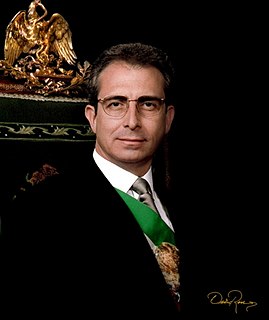A Quote by Michael Morpurgo
I think there's something about studying a book which will kill it if you're not careful.
Related Quotes
I worry about that terribly because the public eye can bring all sorts of unwanted intrusions and problems. But he's treading his own path. I think the modeling is something that Rafferty Law sees as a pastime and something to maybe give him a bit of pocket money. He's a musician mostly. He's in college studying music, which he takes very seriously and I think that is something that he will concentrate on in the future.
You will want a book which contains not man's thoughts, but God's - not a book that may amuse you, but a book that can save you - not even a book that can instruct you, but a book on which you can venture an eternity - not only a book which can give relief to your spirit, but redemption to your soul - a book which contains salvation, and conveys it to you, one which shall at once be the Saviour's book and the sinner's.
Life is challenging. I wish I could tell you that you’ll always be on top of the mountain, but the reality is that there are days when nothing will go right, when not only will you not be on top, you may not even be able to figure out which way is up. Do yourself a favor, and don’t make it any harder than it has to be. In those moments, be careful how you speak to yourself; be careful how you think of yourself; be careful how you conduct yourself; be careful how you develop yourself.
The important thing is to be able to understand anyone who has something useful to say. - There is a general moral here. Be very careful and very clear about what you say. But do not be dogmatic about your own language. Be prepared to express any careful thought in the language your audience will understand. And be prepared to learn from someone who talks a language with which you are not familiar.
Fortunately, both governments have been in favor of studying the Mexican migration problem in greater depth. For the first time, I think, we will have something scientifically sound that says something about this phenomenon. The study is ongoing, and I hope that, with a push from both of us, it will provide a sound basis for serious public discussion on the migration issue.
I think I write or publish as much as I do because I can bear being without a book to work on. But routinely when I finish a book, I think, "What will I do? Where will I get an idea?" And a kind of low-level panic sets in. And then eventually something happens. I don't know. If I knew how it happened I would repeat the process, but I don't know - something just occurs to me.
Some day, as soon as a book is printed it will be simultaneously put into digital form. That will be a wonderful research tool, but it will never substitute for holding the book. I feel certain that at least within my lifetime, everyone will still be going to the bookstore and buying printed books. Thank God I'll die before I have to worry about whether the printed book itself will disappear. That's something I don't want to live to see.
The gods weave misfortunes for men, so that the generations to come will have something to sing about.” Mallarmé repeats, less beautifully, what Homer said; “tout aboutit en un livre,” everything ends up in a book. The Greeks speak of generations that will sing; Mallarmé speaks of an object, of a thing among things, a book. But the idea is the same; the idea that we are made for art, we are made for memory, we are made for poetry, or perhaps we are made for oblivion. But something remains, and that something is history or poetry, which are not essentially different.



































